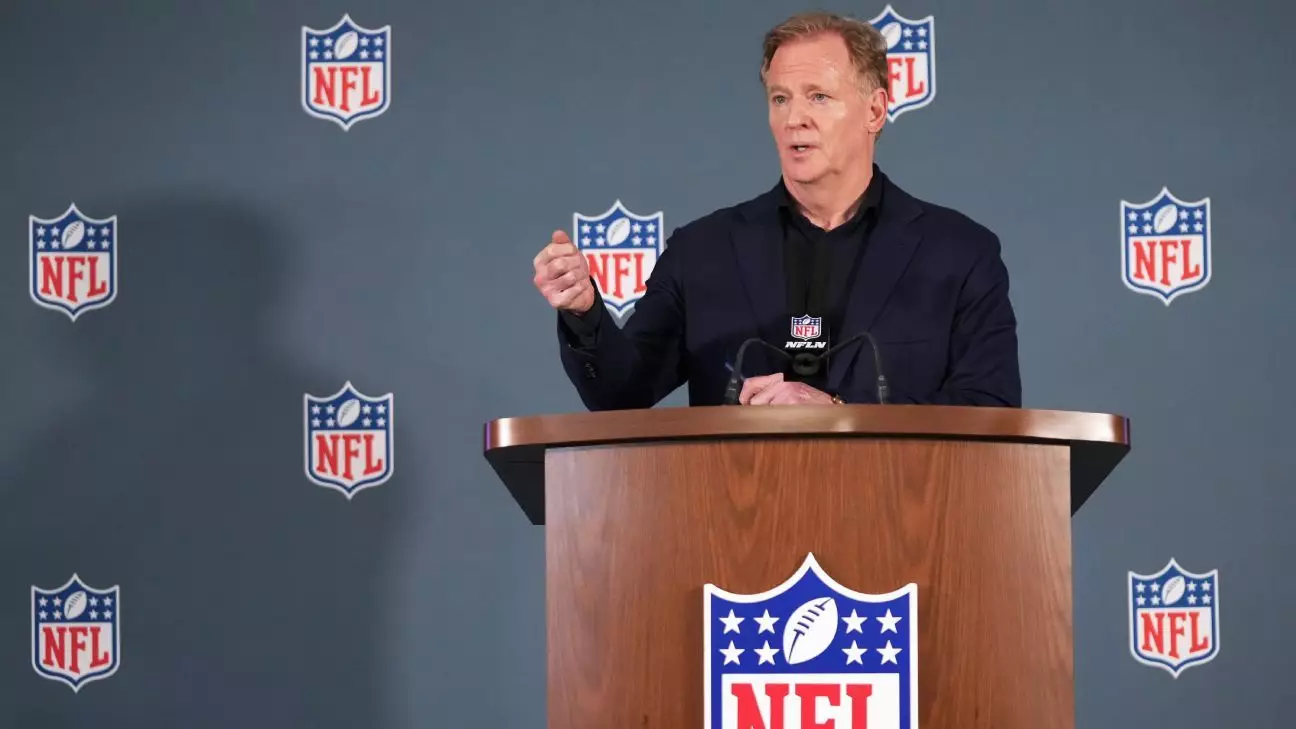In a revolutionary move that could redefine the landscape of American football, NFL Commissioner Roger Goodell announced at a recent league meeting that the inclusion of flag football in the 2028 Los Angeles Olympics is strongly favored by players. The enthusiasm among athletes to don their national colors in this exciting arena demonstrates a significant cultural shift within the sport—one that could broaden its appeal globally. For a long time, football has been synonymous with rowdy stadiums and intense contact. However, the incorporation of a non-contact version into the Olympics stands as a testament to the NFL’s commitment to adapt and innovate in a rapidly changing sports environment.
Flag football’s debut as an Olympic sport could serve as a catalyst to elevate the game’s profile beyond American borders. Goodell’s acknowledgment of player support highlights a pivotal moment where traditional sports can reinvent themselves, resonating with younger and more global audiences. By encouraging athletes to represent their home countries, the NFL taps into a deep-seated desire among players to connect with their roots and showcase their skills on a global stage. For fans and budding players around the world, this presents a unique opportunity to engage with the sport in a less intimidating, more inclusive format.
The Challenges Ahead
However, the road to Olympic participation is fraught with obstacles that demand careful navigation. Key concerns include player safety and how the timing of the Olympic schedule aligns with the NFL’s training camps, typically commencing late summer. The 2028 Games, set for July 14-30, present a logistical conundrum as athletes balance their Olympic aspirations with their commitments to their NFL teams. Goodell has rightly emphasized the necessity of working closely with unions and franchises to address these issues, foreshadowing a period of intense negotiation within the NFL landscape.
As the sport evolves, it is critical for the league to maintain the integrity and health of its players. Ensuring adequate injury protection measures while accommodating the rigorous demands of both NFL training and Olympic participation is paramount. The discussions surrounding these complexities are not just incidental; they could dictate the future viability of flag football as a prominent fixture in international sporting events.
Diversity and Inclusion: The NFL’s Ongoing Struggle
Beyond the excitement of flag football, Goodell also confronted pressing issues surrounding diversity within the league. His steadfast commitment to diversity, equity, and inclusion initiatives comes at a time when societal pressures are forcing organizations to scrutinize their policies more closely. While he emphasizes the importance of cultivating diverse talent, the stark reality facing the league—a notable absence of Black offensive coordinators—cannot be ignored.
Goodell’s acknowledgment of this disparity signals a willingness to address these uncomfortable truths, albeit with the recognition that the opportunities are limited. It reflects a broader struggle within the NFL to reconcile its diversity rhetoric with actual representation in its ranks. The Rooney Rule, which mandates the interviewing of underrepresented candidates, has not always translated into tangible changes, indicating that more profound systemic challenges exist. Dallas Cowboys owner Jerry Jones recently reiterated his support for the Rule, suggesting that perhaps the pathway to genuine equity still needs pivotal enhancements to be fully effective.
Ongoing Investigations: A Clouded Future
In a troubling development overshadowing the NFL’s forward momentum, questions remain regarding Baltimore Ravens kicker Justin Tucker and the allegations emerging from 16 massage therapists. Goodell’s insistence on a thorough investigation reflects an understanding of the gravity of such accusations and the league’s duty to uphold its standards and integrity. The ambiguity surrounding this case serves as a stark reminder that even as the NFL strives for innovative growth, it must also address serious underlying issues that challenge its reputation.
The dynamics of American football—steeped in tradition and intensity—are at a crossroads. The potential for flag football to capture the Olympic spotlight is a thrilling prospect that could reinvigorate the sport while simultaneously fostering a more inclusive atmosphere. Yet, as the organization grapples with diversity challenges and serious allegations, the NFL faces its most significant tests in balancing tradition with the need for change. How the league navigates these complexities will determine not just its future, but the legacy it leaves for the next generation of players and fans.


Leave a Reply